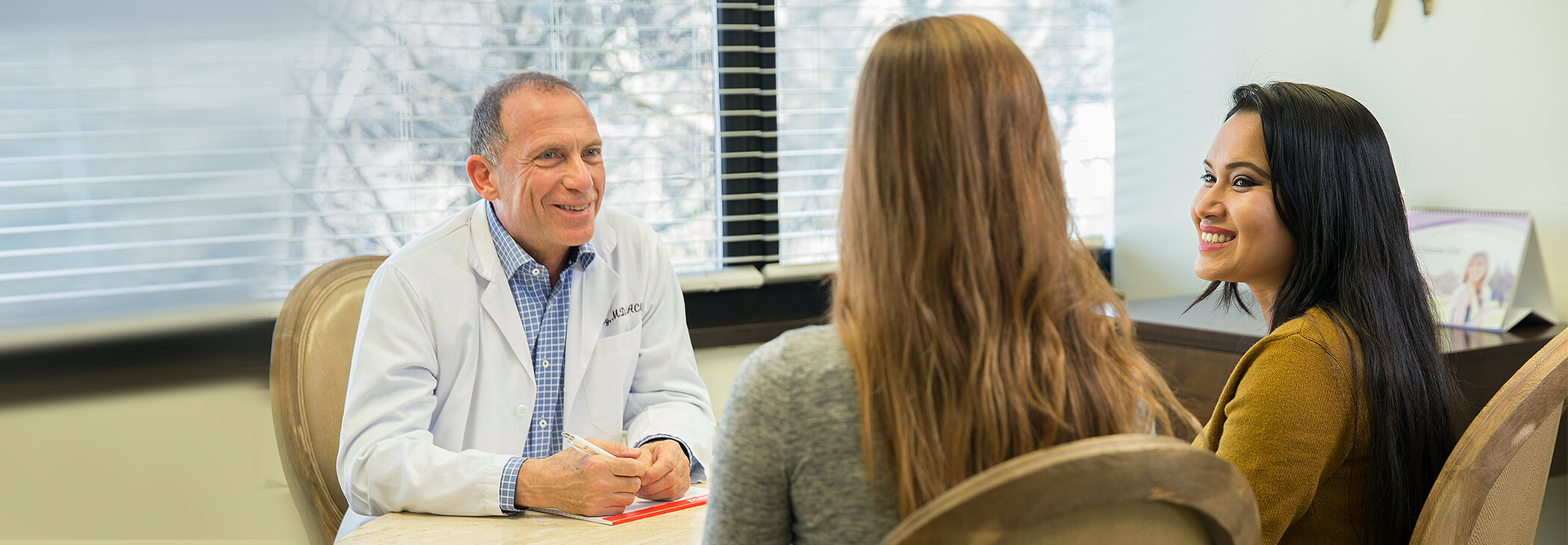

New England Fertility Institute
Stamford, CT
Frequently Asked Question for Egg Donors at NEFI
What are the basic requirements to become an egg donor?
Women who apply should be nonsmokers between the ages of 21 and 33, with a Social Security number or Taxpayer Identification number. Applicants should be at least 5’0” tall with a Body Mass Index (BMI) under 29. (Being underweight or overweight can affect egg quality.) Education beyond high school is strongly preferred.
I don’t live near New England Fertility Institute’s office in Stamford, CT. Can I still be an egg donor?
Yes, as long as you are on the East Coast.
What is your egg donor screening process?
After a prospective donor’s application is reviewed for eligibility, the applicant will be scheduled for genetic, medical, and psychological screening as recommended by the American Society for Reproductive Medicine (ASRM). Screening appointments include bloodwork, vaginal ultrasounds, and interviews with experienced therapists.
Why would my BMI disqualify me from being a donor?
Unlike conceiving your own children with your own eggs, the egg donation process involves roughly two weeks of hormone treatments as well as an egg retrieval procedure. The risk of complications during those processes, which typically are not part of becoming pregnant on your own, can be higher with an above-average BMI.
Do I need to have children of my own to qualify as an egg donor?
We accept donors who have never been pregnant and those who have a history of previous pregnancies.
When will I be scheduled for my egg donor cycle?
An egg donor is cycled only if they are chosen by a recipient, so we cannot predict timing. Recipients often look for donors with specific unique physical and personal characteristics. Some donors are matched quickly, while others take longer.
If I undergo an egg donation cycle, how much time do I need to take off from work, school, or other responsibilities?
A typical egg donation cycle is about two weeks. You will need to complete several monitoring appointments (e.g., vaginal ultrasounds and bloodwork) during those two weeks, and take a whole day off for the egg retrieval. We recommend that donors arrange to have some flexibility in their schedules to go into work or school later than usual or take time off.
How much compensation will I receive?
Donors will receive $8,000-$10,000 for their time and effort. Some donors can donate up to six times.
Does egg donation hurt?
Donors are given injectable medications that stimulate their ovarian follicles and may cause some bloating and irritability. The egg retrieval is done under anesthesia, so donors won’t feel any pain or discomfort. Immediately after the retrieval, some donors report feeling tired, bloated, or abdominal discomfort, but most feel much better the next day.
Will egg donation affect my future fertility?
There is no scientific evidence that shows egg donation compromises your future fertility. In fact, the number of eggs used in donation is similar to the number of eggs you release in a natural menstrual cycle. About 15 to 20 ovarian follicles with one egg inside each start to mature in a menstrual cycle, but only one egg becomes fully mature. An egg donor cycle, with the help of hormonal medications, causes all 15 to 20 eggs to be fully mature; these eggs are utilized for egg donation instead of becoming reabsorbed back into the body. In short, your body has the same number of eggs after an egg donation cycle that it would have after a menstrual cycle.

Contact NEFI
Website:
https://www.nefertility.com/donor
Donor Application:
https://nefi.eggdonorconnect.com/donorprescreen/
Preview Donor Pool:
https://nefi.eggdonorconnect.com/registration
Intended Parent Database Access:
https://nefi.eggdonorconnect.com/registration
NEFI Office Location
Stamford, CT:
1275 Summer Street, Suite 201
Stamford, CT 06905